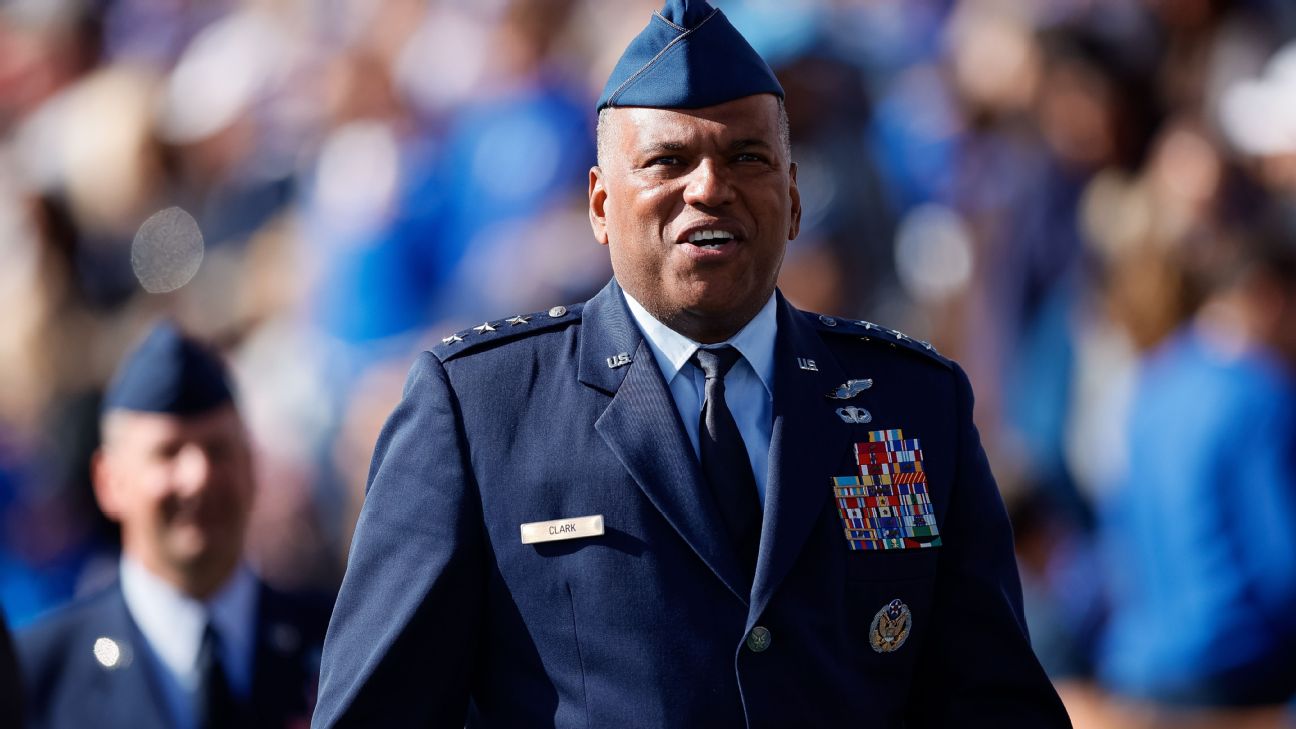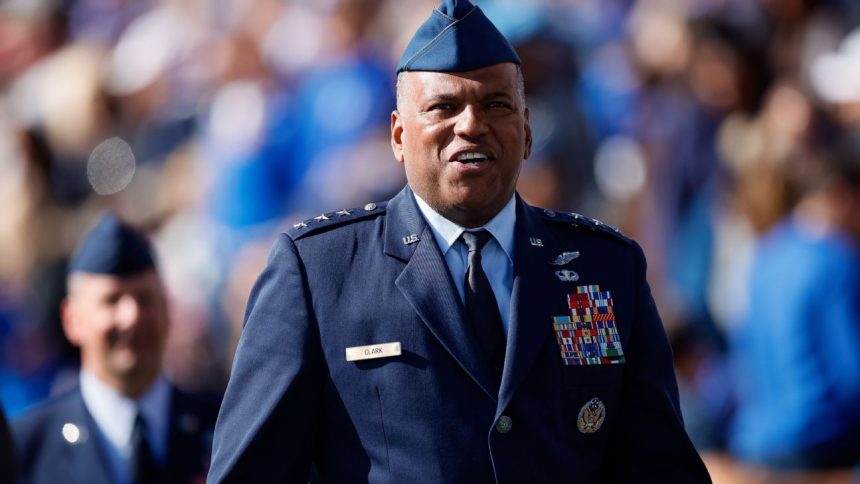
Air Force Academy superintendent Richard M. Clark, who will replace Bill Hancock as the next College Football Playoff executive director, conceded Monday he has “a lot of learning to do,” but will lean on his decades of military service and experience as a former player to help usher in a new era of the CFP.
Clark, a former star linebacker at Air Force, rose through the ranks of the military to lieutenant general during a career he said spanned 38 years. He has been hired at a significant point in the sport’s history, as the playoff will expand to a 12-team format next season.
“There’s a lot of things that are going to have to happen as college football grows and where the CFP goes, and some of those decisions are decisions that I will be working very closely with the stakeholders who are involved in that growth,” Clark said in an introductory teleconference. “And that’s one of skills I think I’ve developed over the years as a person who collaborates and really helps to pull a team together to move forward with big decisions like this.
“As far as what uniquely qualifies me for the kinds of agreements that are going to have to be made, throughout my career in the organizations I’ve been in, I’ve had to work with Congress. I’ve had to work through the Pentagon. If you have any familiarity with the Pentagon, there’s a special skill that you have to have to get anything done there, because it’s a large organization with a lot of stakeholders.”
Hancock, who participated in the call, said much of 2024 will be “a year of transition as Rich gets up to speed on all things CFP.”
Clark will remain superintendent at Air Force through June 2024, and Hancock said he will officially retire “early in 2025.”
“Making decisions specifically on the kinds of agreements that we’re going to have to make, I have some learning to do,” Clark said. “I’m very happy that Mr. Hancock is going to be there to help me to understand that in the months ahead, so that when the decisions are mine, to help and direct and guide, that I’ll be able to build that experience.”
Prior to his current role at Air Force, Clark’s assignments included commanding bases around the country, working as a White House fellow and serving as a senior defense official in Egypt. His assignment before taking over at Air Force was deputy chief of staff for strategic deterrence and nuclear integration at the Pentagon.
“I’ve always considered myself a lifelong learner,” Clark said. “Every job that I’ve ever gone into in the Air Force over 38 years, usually I’m pretty new in whatever that mission was. I have a lot of learning to do, but I rely on my team around me, I rely on mentors who are supporting me, and seek out the experts who can help me with some of the complex issues that surround these decisions.”
It’s unclear how much input or influence Clark will have on the next CFP contract. There are two years remaining in the current deal, which expires following the 2025 season. The expanded field is expected to generate roughly $450 million in gross revenue, and the distribution of it — along with media rights partners — are at the forefront of discussions.
“The upcoming contract for CFP, Mr. Hancock will still be in place all the way through into ’25, so depending on the timing of those contracts, that’s going to drive how much influence I’ll have,” Clark said. “Regardless, I will be shoulder-to-shoulder with [Hancock] as we go through so that I can first build the experience but also understand his thought process and how he goes through making these kinds of decisions.
“I am confident that when the time comes for me to be the one leading us through these decisions, I’ll be ready.”












